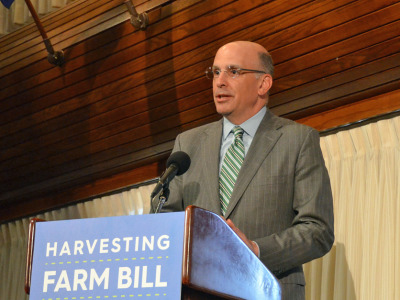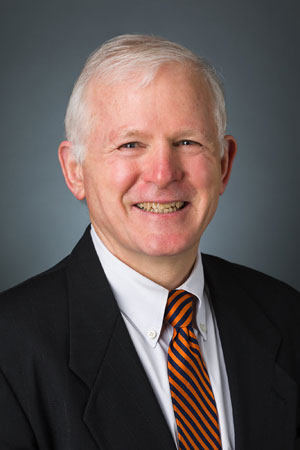Farm Credit lenders are asking Congress in the upcoming farm bill to expand their authority to rural community facilities and fisheries projects, but some community bankers are worried the changes will siphon away their business.
Farm Credit System lenders, unlike private banks, are exempt from federal, state, municipal and local taxes related to real estate. But the system's 67 associations are restricted to lending money for agricultural real estate, farm equipment, agribusiness, rural home mortgages, and other specific agricultural and rural uses.
Two new proposals supported by Farm Credit System institutions, however, would expand these authorities. One bill, the Fishing Industry Credit Enhancement Act, would allow Farm Credit System loans to go toward boat builders, gear manufacturers, bait suppliers and other businesses that “provide direct assistance to fishing operations.”
Todd Van Hoose, president and CEO of the Farm Credit Council, told Agri-Pulse that Farm Credit lenders are currently able to lend to commercial fishing operators, but not to the businesses that support them. This is unlike the system’s authorities surrounding agriculture, which allow Farm Credit institutions to lend not only to farmers but also “farm-related” businesses like custom harvesters, equipment repair shops or veterinarians.
“When Congress drafted the Farm Credit Act years and years ago, I don’t really think anybody focused much on the fishing-related businesses as they did farm-related,” Van Hoose told Agri-Pulse. “But what we’ve found is the fishing industry has such tremendous pressure on it right now, especially environmental pressures. The fisheries are more tightly regulated now and then there’s a good bit of foreign competition in that sector as well. So it’s a tough way to make a living right now.”
The bill is sponsored in the House by Reps. Chellie Pingree, D-Maine, Clay Higgins, R-La., and in the Senate by Sens. Angus King, I-Maine, and Lisa Murkowski, R-Alaska.
The other proposal would give Farm Credit institutions additional authority to finance rural facilities like hospitals, schools and child care centers, so long as they offer participation “with at least one non-FCI lending institution on any potential project.”
 Todd Van Hoose, Farm Credit CouncilFarm Credit lenders can currently invest in such projects, but need the approval of the Farm Credit Administration, the government agency overseeing the system. Van Hoose said the bill would “regularize” these investments by removing the need for FCA approval, which he says can slow down the process of constructing the facilities.
Todd Van Hoose, Farm Credit CouncilFarm Credit lenders can currently invest in such projects, but need the approval of the Farm Credit Administration, the government agency overseeing the system. Van Hoose said the bill would “regularize” these investments by removing the need for FCA approval, which he says can slow down the process of constructing the facilities.
“Right now each individual deal requires individual regulatory approval and, as you might imagine, that is a very difficult way to operate,” Van Hoose said.
The bill is sponsored by Reps. Michelle Fischbach, R-Minn., Don Davis, D-N.C., Brad Finstad, R-Minn., and Yadira Caraveo, D-Colo.
Van Hoose also said Farm Credit can provide resources that other entities like commercial banks may lack in certain rural communities, particularly when it comes to projects that could take between 20 and 30 years to finance. He said under current arrangements, Farm Credit institutions often handle these long-term commitments, while commercial banks focus on the day-to-day corporate finance and the USDA provides a guarantee.
“We think that’s a great arrangement for everybody, brings tremendous benefits to the rural community and gives the bankers some business,” Van Hoose said.
Don't miss out sign up for a FREE month of Agri-Pulse news! For the latest on what’s happening in Washington, D.C. and around the country in agriculture, just click here.
But one banker group, the Independent Community Bankers of America, has concerns about the proposal. Gus Barker, an Iowa banker and member of the group, testified at a May Senate Agriculture Committee hearing that expanding Farm Credit System lending authorities into nonfarm projects could “push community banks off Main Street.”
Mark Scanlan, ICBA’s senior vice president of agriculture and rural policy, is worried the broadness of the term “community facilities” could “open the floodgates” for Farm Credit lending. He said the language could potentially go beyond nonprofit facilities and allow Farm Credit institutions to lend to grocery stores, gas stations, restaurants, hotels, apartment complexes and other rural businesses.
“The definition of how far this would reach is unknown because it’s not defined,” Scanlan told Agri-Pulse. “So I think there’s a devil in the detail concept here and it looks to us like they’re playing a lot of 'three-card monte' in what they’re saying Congress should focus on and what the overall broader agenda really is.”
 Mark Scanlan, ICBA
Mark Scanlan, ICBA
Scanlan also said Farm Credit lenders would not necessarily be required to reach out to community banks for investment in these projects. The measure stipulates Farm Credit should offer participation to outside institutions, but USDA or credit unions could potentially fall under that category, Scanlan said.
“The banks could be completely shut out of this area, and this is an area that they do heavily finance now,” Scanlan said of community facility lending.
Sen. John Boozman, the ranking member of the Senate Agriculture Committee, said there are “mixed messages” coming from the committee’s members when it comes to expanding Farm Credit authorities. Currently, Boozman, R-Ark., says his focus is on understanding the arguments from both sides.
When asked about the proposals, House Ag Committee Chair Glenn “GT” Thompson, R-Pa., told Agri-Pulse the committee is looking at the language as it works on drafting the farm bill. He noted, however, that he considers fisheries to be agriculture. He also said “significant community projects” like hospitals and schools often need more than one financial source to get up and running.
“There’s a partnership to be had between our community banks and Farm Credit and I think there’s some models out there in places where they’ve done that effectively,” Thompson said.
For more news, go to www.Agri-Pulse.com.


